The 1 Catch For Profound Psychology Of Fishing
Catching the Mind Beneath the Surface
How Fishing And Catching Fish Shapes Identity, Emotion, and Ecological Connection
Fishing is often portrayed as a quiet escape—a pastime for solitude seekers and nature lovers. But beneath the surface of this seemingly simple act lies a profound psychological experience. Fishing is not just about catching fish; it’s about engaging with uncertainty, memory, emotion, and identity. It’s a ritual that connects us to our evolutionary past, offers therapeutic benefits in the present, and fosters ecological awareness for the future. Whether practiced in silence or shared among friends, fishing becomes a mirror for the mind and a bridge to the natural world.
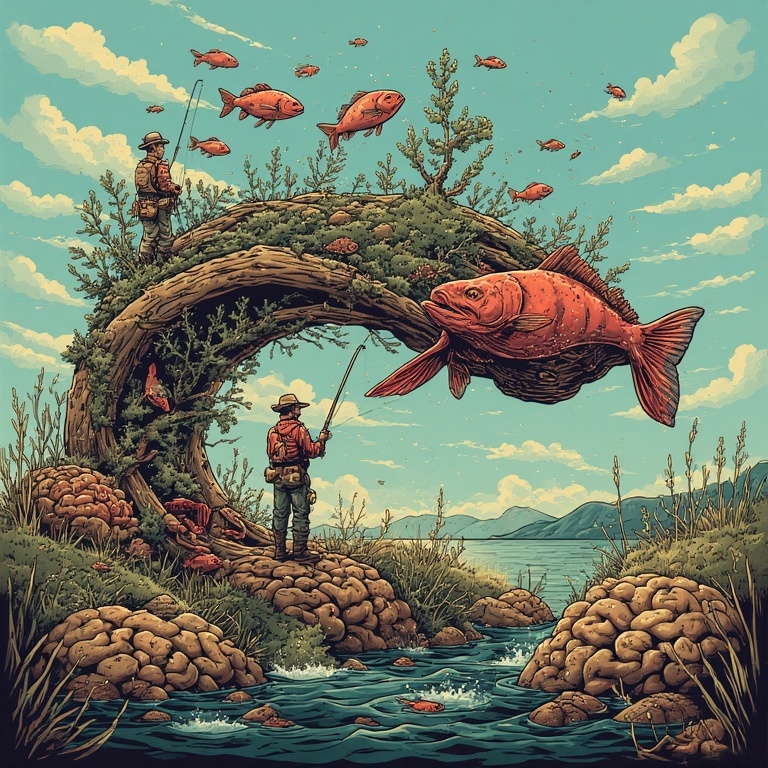
Evolutionary Roots of Angling & The Catch
Fishing is one of humanity’s oldest survival strategies, predating agriculture and shaping early human migration. Our ancestors fished not only for sustenance but for knowledge—learning seasonal rhythms, territorial boundaries, and aquatic behavior. The act of casting into water mimics primal hunting instincts, activating reward systems in the brain even before a catch occurs.
Tool use in fishing—nets, spears, hooks—marked cognitive advancement, while storytelling around fishing rituals passed down ecological wisdom. Fishing required patience, strategic thinking, and impulse control—traits linked to cognitive evolution. Even today, gear design reflects ancient principles of lure and deception. Fishing teaches delayed gratification and adaptive responses to uncertainty. It is not just recreation—it is a reenactment of survival, a ritual that connects instinct with intellect.
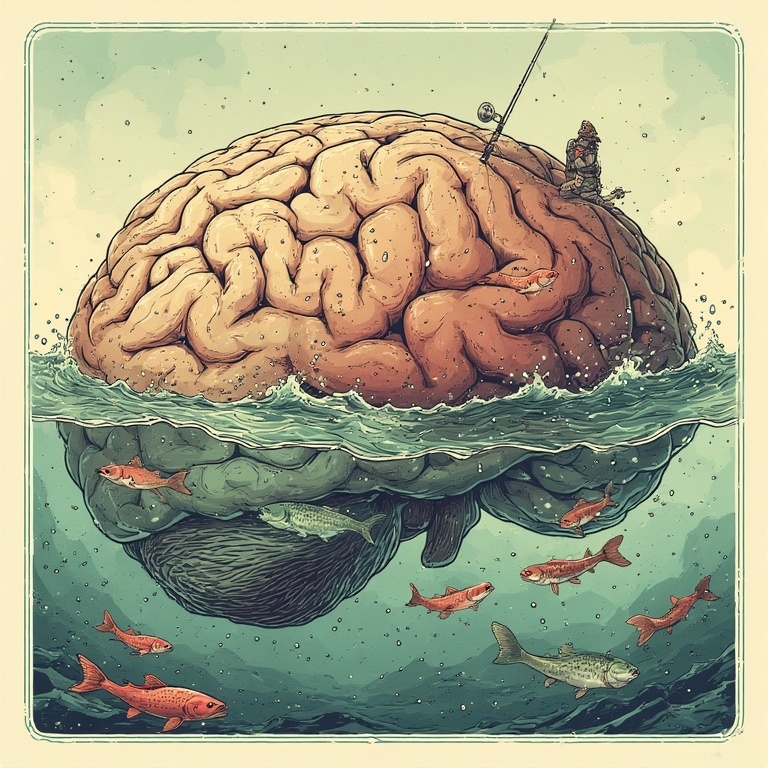
Fishing as Mindfulness Practice
Fishing offers a unique form of mindfulness, blending motion with stillness and awareness with anticipation. The repetitive rhythm of casting and reeling induces a meditative state, while immersion in natural environments lowers cortisol levels and reduces stress. Anglers often report entering flow states—complete absorption in the moment—where time slows and sensory awareness heightens.
Fishing demands present-moment focus, as the unpredictability of fish behavior requires active attention. Breathing often synchronizes with water rhythms, enhancing calm and grounding. Fishing teaches acceptance of conditions, outcomes, and limitations. The silence is not emptiness—it is presence. Rituals like tying knots and prepping gear create grounding routines, while solitude fosters introspection. Even in groups, fishing can be quietly communal, offering shared silence and purpose. The act of releasing a fish becomes symbolic—letting go, honoring life, and embracing impermanence.
Cognitive Mechanics of the Catch
Fishing is cognitively demanding, involving decision-making, pattern recognition, and spatial reasoning. Anglers must evaluate location, bait, timing, and technique, often adjusting strategies mid-session. The brain processes environmental cues—ripples, shadows, temperature shifts—while memory helps recall past successes and failures. Fishing enhances both analytical and intuitive thinking, sharpening attention span and executive function. It’s a sport of mental simulation, where visualization and gut instinct converge. The unpredictability of each cast trains cognitive flexibility and resilience. Anglers develop intuitive expertise through experience, learning to read subtle signs and adapt quickly. Fishing becomes a form of , where success depends on observation, calibration, and mental endurance.
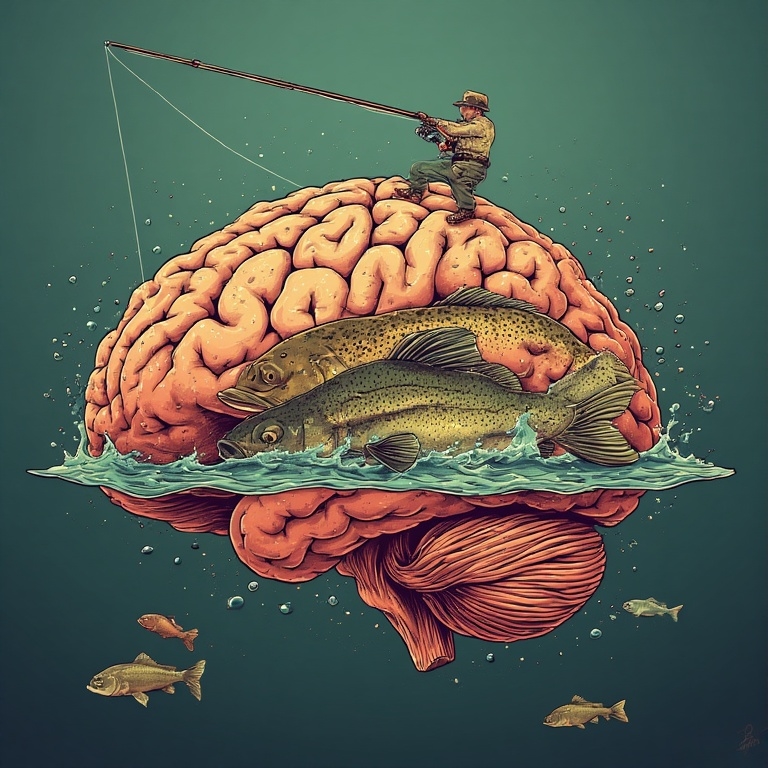
Catch Identity and the Angler Archetype
Fishing shapes personal and cultural identity in subtle but powerful ways. Anglers often see themselves as stewards of nature, not just sportsmen. Gear becomes symbolic—an extension of self—while fishing stories reflect deeper emotional truths. The solitary angler archetype evokes mythic imagery, part hermit, part hero. Fishing rituals mark life transitions, from childhood rites to moments of grief or celebration. For many, fishing is not just a hobby—it’s a worldview, a quiet form of self-expression rooted in rhythm, reflection, and reverence. Anglers often identify with specific species or techniques, developing a philosophy around their practice. Fishing becomes a narrative—who we are, where we’ve been, and how we engage with the world.
Emotional Regulation and Fishing Catch
Fishing provides a structured outlet for emotional processing. The act of casting externalizes tension, while the quietude of water allows suppressed emotions to surface. Anglers often report emotional clarity after long sessions, describing fishing as “therapy without words.” The unpredictability of outcomes teaches resilience, while rituals like releasing a fish symbolize emotional release. Fishing fosters emotional literacy, helping individuals navigate grief, anxiety, and introspection through tactile engagement with nature. The rhythm of fishing—its pauses, its patience—mirrors emotional pacing. It teaches control not over outcomes, but over response, offering a space for healing and reflection.
Symbolism of Water in Fishing
Water holds deep symbolic meaning in psychology—often representing the unconscious, transformation, and emotional depth. Fishing becomes a metaphor for introspection: casting into the unknown, waiting for what may surface. The clarity or murkiness of water mirrors psychological states, while tidal rhythms evoke cycles of emotion. Anglers often describe water as “alive,” a mirror for their own thoughts and moods. Fishing in different conditions—rain, fog, dusk—adds layers of symbolic resonance, turning each session into a ritual of reflection. The boundary between land and water becomes a liminal space, where identity shifts and meaning emerges.
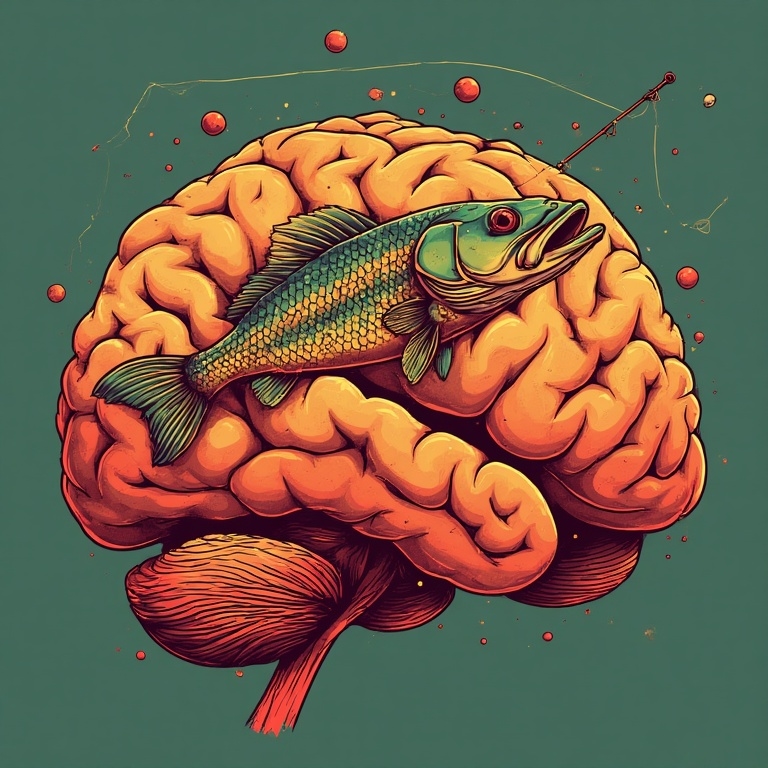
Social Dynamics of Fishing
Fishing can be deeply communal, fostering connection through shared silence, goals, and stories. Anglers bond over technique, location, and tradition, often forming tight-knit communities. Fishing trips mark life events—birthdays, retirements, reunions—and teach cooperation and patience. Group fishing reduces social anxiety, offering low-pressure interaction and mutual support. The social aspect of fishing enhances learning, safety, and emotional well-being, transforming solitary practice into collective ritual. Fishing etiquette reflects social norms, while mentorship and storytelling build intergenerational bonds.
Ecological Ethics and Stewardship
Fishing teaches responsibility toward ecosystems. Catch-and-release practices reflect ethical evolution, while anglers often become advocates for habitat preservation. Direct experience with aquatic life fosters ecological empathy, revealing the fragility of natural systems. Gear choices—barbless hooks, biodegradable lines—reflect environmental awareness. Ethical fishing is not just about technique—it’s a philosophy of reciprocity, humility, and guardianship. Anglers often educate others, participate in conservation efforts, and view themselves as protectors of the waters they fish. Fishing becomes a gateway to broader environmental action.
Ritual and Myth in the Catch & Fishing
Fishing is rich in ritual and myth. Anglers follow personal superstitions, repeat ceremonial actions, and pass down stories that become legends. The act of fishing evokes the hero’s journey—venturing into the unknown, facing uncertainty, and returning with insight. Rituals like gear preparation and casting become symbolic enactments, while fishing myths connect people to place, ancestry, and transformation. Fishing is not just sport—it’s a living mythology, shaped by repetition, reverence, and storytelling.
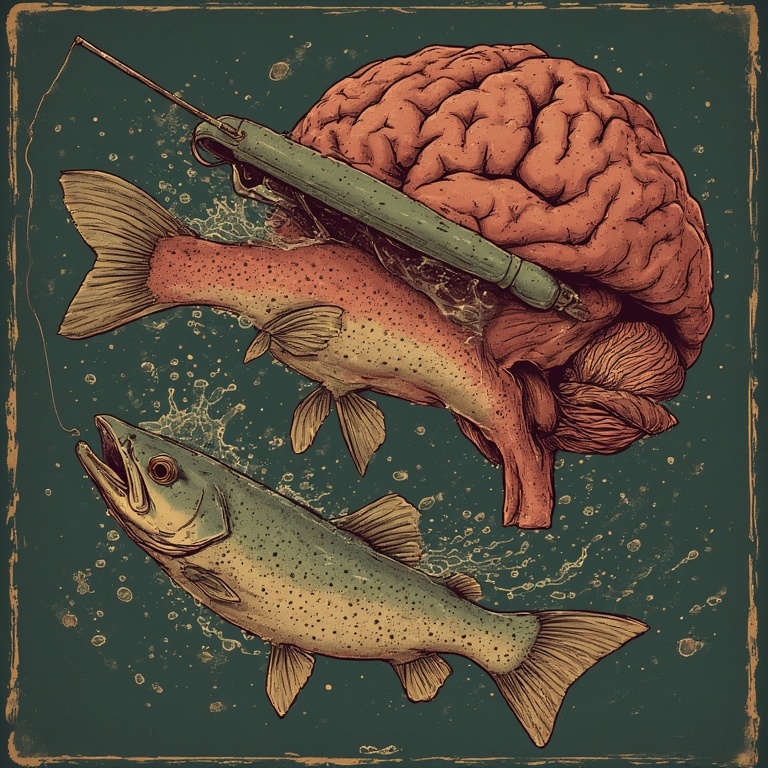
Technological Influence on Fishing Psychology
Modern technology has reshaped the fishing experience. Sonar, GPS, and digital tracking tools enhance efficiency but alter psychological engagement. Anglers debate the ethics of tech use, balancing tradition with innovation. While technology can reduce uncertainty, it may also diminish mystery and intuition. Fishing apps and forums create new forms of learning and identity, while gear customization reflects personal expression. The challenge lies in integrating tech without losing the tactile, immersive essence of fishing.
Gender and Fishing
Fishing has historically been male-dominated, but gender dynamics are shifting. Women anglers challenge stereotypes, reshape culture, and bring unique perspectives to the practice. Fishing teaches empowerment, self-reliance, and confidence across genders. Inclusive gear design, mentorship, and community support foster equity and visibility. Gender diversity enriches fishing narratives, transforming it into a space of liberation, expression, and ecological stewardship. Fishing becomes a site of transformation and resistance, where all identities can find rhythm and meaning.
Cultural Histories of Fishing
Fishing traditions vary across cultures, reflecting diverse tools, rituals, and meanings. Indigenous practices embody deep ecological knowledge, while fishing festivals mark seasonal and spiritual cycles. Cultural fishing methods—spearfishing, net casting, ice fishing—shape identity and heritage. Stories, songs, and art preserve oral histories, connecting anglers to ancestral wisdom and praise for the catch. Fishing becomes a cultural archive, a living history of adaptation, reverence, and ecological balance. It’s not just technique—it’s heritage.
Urban vs. Wild Fishing
Fishing in urban environments presents unique psychological dynamics. City anglers navigate noise, pollution, and limited access, yet find solace in pockets of nature. Wild fishing offers immersion, solitude, and deeper ecological connection. The contrast between urban and wild settings shapes mood, identity, and ritual. Urban fishing teaches adaptability and resilience, while wild fishing evokes mythic solitude. Both forms reflect the human need to connect with water, regardless of setting.
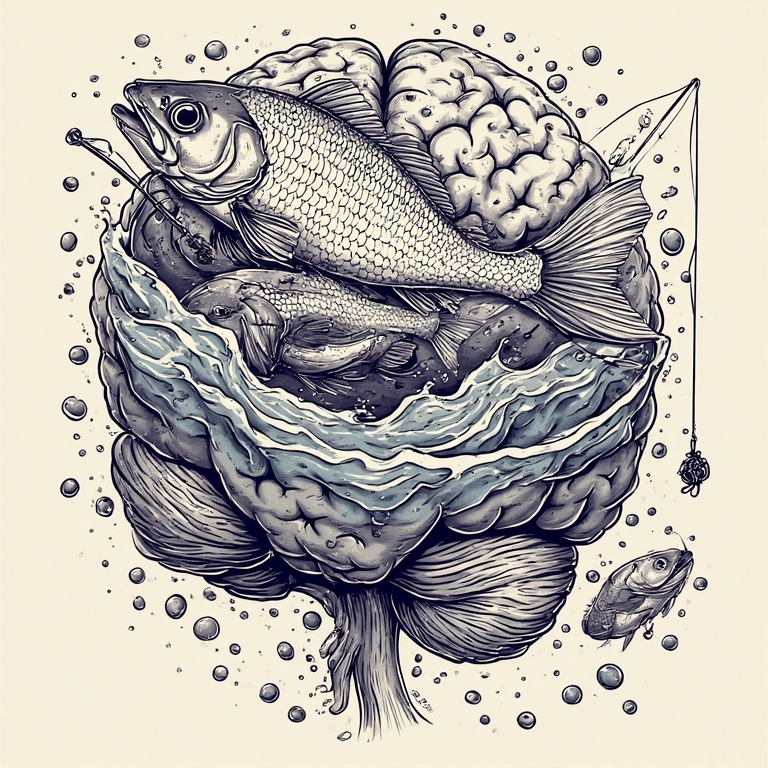
Competitive Psychology in Fishing
Tournament fishing introduces high-stakes psychological challenges. Anglers must manage pressure, decision fatigue, and performance anxiety. Competitive fishing sharpens focus, strategy, and resilience, but may also heighten stress and ego. The psychology of winning and losing becomes central, shaping identity and motivation. Anglers develop rituals, mental preparation techniques, and coping strategies. Competition transforms fishing into a sport of precision, endurance, and psychological grit.
Global Shifts in the Psychology of Fishing Catch
The psychological experience of fishing is not static—it evolves across global contexts, shaped by geography, cultural tradition, economic necessity, and ecological transformation. In coastal villages of Southeast Asia, fishing remains a livelihood deeply tied to ancestral knowledge and community survival. Here, the act of fishing carries generational weight, blending ritual with responsibility.
In contrast, recreational fishing in North America or Europe often reflects individualism, leisure, and sport, with psychological emphasis placed on solitude, challenge, and personal mastery. Meanwhile, in regions facing overfishing or climate disruption—such as parts of West Africa or the Arctic—the emotional landscape of fishing is marked by loss, adaptation, and resilience. Anglers in these areas may experience fishing as a form of ecological mourning, where traditional rhythms are disrupted and species decline alters identity.
Urban fishing in megacities like Tokyo, São Paulo, or New York introduces another layer—where psychological engagement is shaped by noise, density, and the search for nature within concrete boundaries. Across the globe, fishing reflects local values: in some places, it’s a sacred rite; in others, a competitive sport; elsewhere, a quiet rebellion against digital overload.
The tools may differ—hand lines, bamboo rods, sonar-equipped boats—but the underlying psychological themes remain: connection, patience, uncertainty, and meaning. As global waters warm and ecosystems shift, the psychology of fishing will continue to evolve, becoming not just a personal ritual but a planetary reflection of how humans relate to nature, memory, and each other.
Cost of Living and the Changing Meaning of Fishing
How important is i to catch a fish for food? As global cost-of-living pressures intensify, fishing is undergoing a subtle psychological transformation. For many, what was once a leisurely escape or cultural tradition is now reframed through economic necessity and shifting priorities. In regions where inflation and housing stress dominate daily life, fishing offers a rare form of low-cost engagement with nature—requiring minimal investment compared to other recreational activities. A rod, a line, and access to water can provide hours of immersive experience, emotional regulation, and even supplemental food.
This affordability enhances fishing’s appeal across socioeconomic boundaries, turning it into a quiet act of resilience. Yet the psychological landscape is complex: some anglers report guilt or anxiety when spending time fishing instead of working or hustling, while others find in it a form of protest against hyper-productivity and digital overload.
In communities where cost of living has eroded access to green space or leisure time, fishing becomes a reclaiming of rhythm, autonomy, and connection. It’s not just about catching fish—it’s about catching breath in a world that demands constant output. As economic pressures reshape how people relate to time, nature, and self-worth, fishing remains one of the few rituals that offers depth without expense, meaning without monetization, and presence without performance.
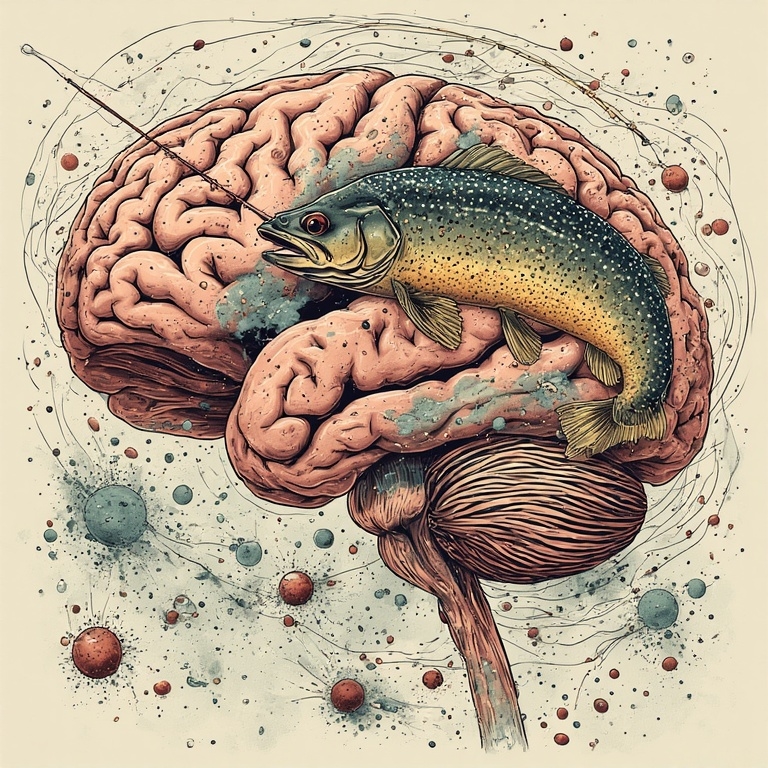
Childhood, Growing Up, and the First Cast or First Catch
Fishing often enters a person’s life in childhood, leaving a lasting psychological imprint that shapes identity, memory, and emotional development. For many, the first cast is a rite of passage—a moment of initiation into patience, uncertainty, and connection with nature. The tactile rituals of baiting a hook, watching a bobber, or feeling the tug of a line become embedded in early sensory memory.
Fishing teaches children to wait, to observe, and to engage with the world beyond screens and structure. It offers a rare space where silence is not awkward but sacred, where adults and children share time without performance or distraction. These early experiences often become emotional anchors—recalling a parent’s guidance, a grandparent’s wisdom, or a friend’s laughter on the dock.
As children grow, fishing evolves from play into practice, from curiosity into contemplation. Adolescents may find in fishing a refuge from social pressure, a place to process emotion and identity. The act of returning to the same waters over time creates a sense of continuity, a personal mythology that deepens with age. Fishing in youth is not just about learning technique—it’s about learning how to be alone, how to be present, and how to belong to something larger than oneself.
The Old Man and the Sea – Endurance, Solitude, and Symbolic Fishing
Ernest Hemingway’s The Old Man and the Sea remains one of the most iconic literary meditations on fishing—not for its technique, but for its psychological and symbolic depth. Santiago, the aging fisherman, embodies the solitary angler archetype: resilient, introspective, and bound to nature through ritual and struggle. His battle with the marlin is not just physical—it’s existential. The fish becomes a mirror for his own endurance, dignity, and fading strength. The sea, vast and indifferent, reflects both isolation and connection, offering Santiago no guarantees but demanding his full presence.
This narrative resonates deeply with the psychology of fishing, especially in its portrayal of patience, suffering, and the quiet triumph of effort over outcome. Santiago’s respect for the fish, even as he fights it, echoes the ethical and emotional complexity many anglers feel—where the catch is not conquest but communion. The novella also explores aging and legacy, showing how fishing becomes a final dialogue between man and nature, memory and mortality. For readers and anglers alike, The Old Man and the Sea is not just a story—it’s a symbolic map of what it means to cast into the unknown, to endure, and to return changed.
Fishing and Time – Rhythm, Memory, and Temporal Escape
Fishing alters our perception of time. In a world dominated by schedules, deadlines, and digital acceleration, the act of casting a line offers a rare temporal escape. Time on the water is nonlinear—marked not by minutes but by moments, by the rhythm of the tide, the arc of the sun, and the silence between bites. Anglers often describe fishing as a way to slow down, to enter a different kind of clock where attention expands and urgency dissolves.
This shift in temporal experience has psychological benefits, it reduces stress, enhances focus, and fosters reflection. Fishing also creates time loops—returning to the same spot year after year, reliving childhood rituals, or retelling stories of past catches. These loops reinforce memory and identity, anchoring the self in continuity. Fishing becomes a temporal ritual, a way to reclaim time not as commodity but as experience.
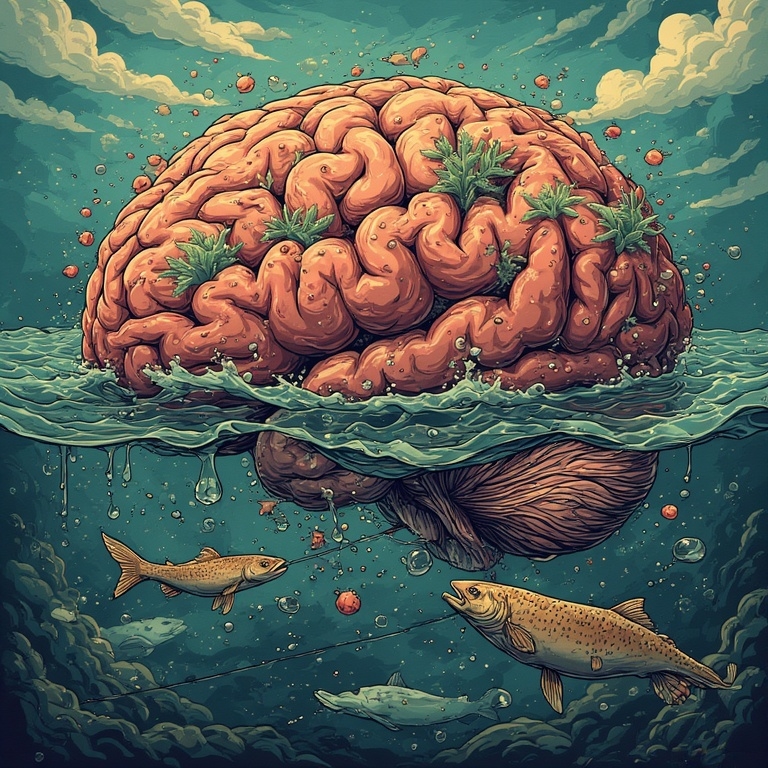
Fishing and Climate Change – Witnessing the Shifting Waters
Anglers are among the first to notice the subtle—and sometimes dramatic—effects of climate change. Shifts in fish migration, water temperature, and seasonal patterns are not abstract data points—they’re lived experiences. Fishing becomes a form of ecological witnessing, where the absence of familiar species or the arrival of invasive ones signals deeper environmental disruption.
This awareness carries psychological weight. For some, it evokes grief and loss; for others, urgency and activism. Fishing teaches attentiveness to change, and in the context of climate disruption, that attentiveness becomes a form of stewardship. Anglers may adapt their practices, advocate for conservation, or document ecological shifts through citizen science. Fishing in a warming world is no longer just recreation—it’s a frontline engagement with planetary transformation.
Fishing and Dreams – Subconscious Currents Beneath the Surface
Fishing often appears in dreams, literature, and symbolic narratives as a metaphor for searching, longing, and the unknown. Psychologically, fishing taps into the subconscious—the act of casting into unseen depths mirrors the process of introspection and emotional excavation. In dreams, fishing may represent a quest for insight, a desire to retrieve something hidden, or a confrontation with uncertainty.
The water itself symbolizes the unconscious, and the fish—elusive, unpredictable—becomes a stand-in for truth, emotion, or transformation. Anglers sometimes describe fishing as dreamlike, especially during long, solitary sessions where thought drifts and boundaries blur. Fishing becomes a liminal practice, bridging waking and dreaming, surface and depth, conscious and unconscious. It’s not just about what’s caught—it’s about what’s stirred beneath.
Fishing and Language – The Vocabulary of Silence and Story
Fishing has its own language—a blend of technical terms, regional slang, and poetic metaphor. But just as important as what is said is what is left unsaid. Fishing teaches a vocabulary of silence, where gestures, glances, and pauses carry meaning. The act itself becomes communicative—casting, waiting, releasing. Yet anglers are also storytellers, and fishing tales often stretch the boundaries of fact and fiction.
These stories serve psychological functions: they reinforce identity, process emotion, and build community. The language of fishing is layered—practical, symbolic, mythic. It reflects the complexity of the experience, where a single cast can mean technique, hope, memory, or metaphor. Fishing is not just an act—it’s a narrative, shaped by the words we choose and the silences we honor.
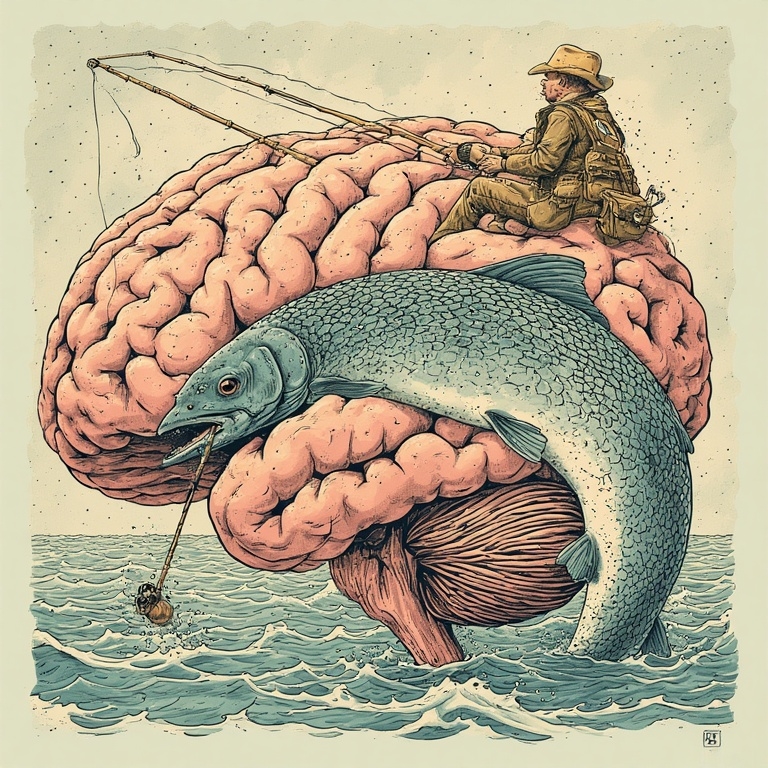
Fishing and Accessibility – Inclusion at the Water’s Edge
Fishing is one of the few outdoor activities that can be radically inclusive—physically, economically, and socially. Unlike sports that require specialized terrain or costly equipment, fishing can be practiced from piers, banks, boats, or even urban canals. For individuals with mobility challenges, sensory sensitivities, or neurodivergent traits, fishing offers a customizable experience: quiet, tactile, and paced by personal rhythm. Community programs and adaptive gear have expanded access further, allowing people of all abilities to engage with nature on their own terms. Psychologically, this inclusivity matters.
Fishing becomes a space of agency and autonomy, where participants are not defined by limitations but by presence and participation. It’s a rare ritual where silence is respected, pace is self-determined, and success is measured not by competition but by connection. As accessibility becomes a central concern in outdoor recreation, fishing stands out as a model of how nature-based practices can evolve toward equity without losing depth.
Fishing and the Senses – A Tactile Dialogue with Nature
Fishing is a multisensory experience—one that engages touch, sound, sight, and even smell in ways few other activities do. The feel of line tension, the texture of bait, the subtle vibration of a strike—all create a tactile dialogue between angler and environment. Sound plays a role too: the lapping of water, the rustle of reeds, the distant call of birds. These auditory cues ground the angler in place and time, enhancing focus and emotional regulation. Visual elements—light on water, the shimmer of scales, the movement of shadows—stimulate pattern recognition and aesthetic appreciation.
Even scent matters: the earthy smell of wet soil, the briny air of coastal fishing, the musk of freshwater. Together, these sensory inputs create a state of embodied awareness, where the angler is not just observing nature but participating in it. Fishing becomes a form of sensory immersion, a way to recalibrate attention and reconnect with the physical world in a culture increasingly dominated by screens and abstraction.
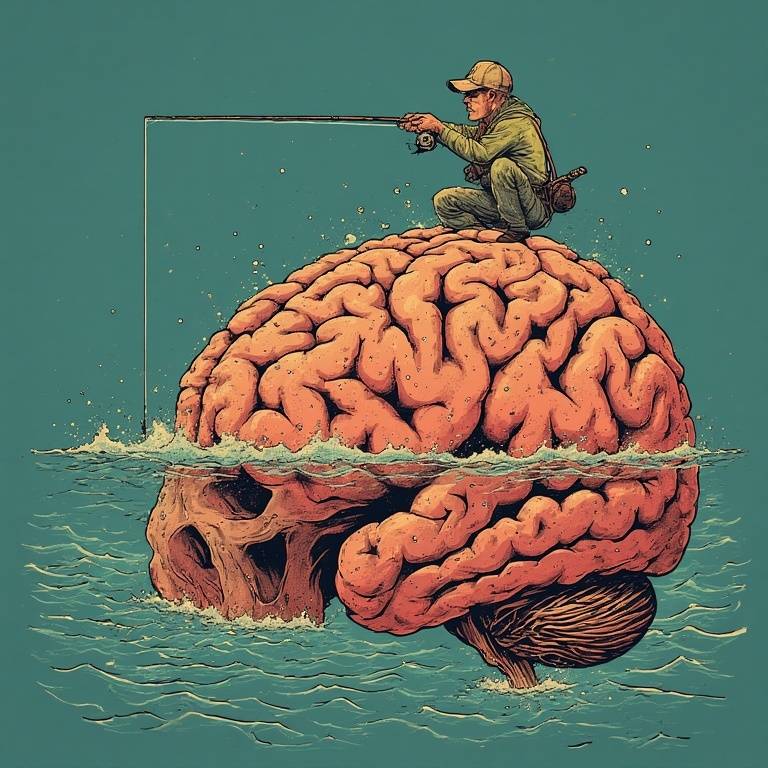
Fishing and Legacy – Passing Down More Than Technique
Fishing is often passed down through generations—not just as a skill, but as a story, a ritual, and a worldview. Grandparents teach grandchildren how to tie knots, parents share secret spots, and siblings compete over who caught the biggest fish. These exchanges are more than instructional—they’re emotional and symbolic. Fishing becomes a vessel for memory, a way to transmit values like patience, respect, and ecological awareness.
The gear itself may carry legacy, a well-worn rod, a tackle box filled with history, a journal of past catches. These objects become heirlooms, anchoring identity across time. Psychologically, legacy fishing fosters continuity and belonging. It creates shared language, shared silence, and shared meaning. Even when techniques evolve or locations change, the emotional imprint remains. Fishing is not just about the present moment—it’s about honoring the past and shaping the future. It’s a ritual of remembrance, a gift of rhythm, and a quiet promise that some things—like water, waiting, and wonder—will endure.
Fishing and Disability – Autonomy, Adaptation, and Embodied Connection
Fishing offers a rare kind of accessibility—one that transcends physical, cognitive, and sensory boundaries to create space for autonomy, dignity, and embodied connection with nature. For individuals living with disability, fishing can be more than recreation—it can be liberation.
The act of casting a line, feeling the tension of a bite, or simply sitting beside water becomes a tactile dialogue between body and environment. Adaptive gear—such as rod holders, modified reels, and accessible piers—has expanded participation, but the deeper transformation lies in how fishing reframes ability itself. It’s not about speed, strength, or competition—it’s about rhythm, presence, and engagement. Fishing allows people to set their own pace, define their own goals, and experience nature on their own terms. Psychologically, this autonomy fosters confidence, emotional regulation, and a sense of belonging.
For some, fishing becomes a therapeutic ritual—reducing anxiety, enhancing focus, and offering relief from overstimulation. For others, it’s a social bridge—connecting across difference through shared silence and mutual respect. Fishing doesn’t erase disability—it honors it, integrating it into a practice where variation is not limitation but adaptation. In this way, fishing becomes a model for inclusive design, ecological empathy, and the quiet power of participation without performance.
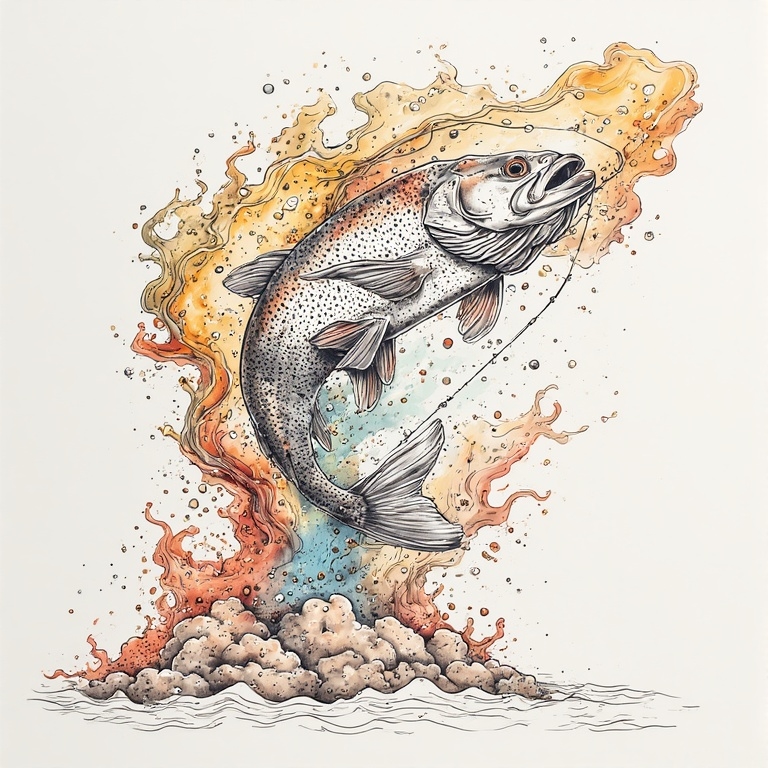
Conclusion – The Line Between Self and Water
Fishing is a quiet revolution—a practice that blends instinct, intellect, emotion, and ethics and may end up with a catch. It teaches patience, presence, and humility, offering a mirror to the mind and a bridge to nature. Whether practiced in solitude or shared among friends, with traditional gear or modern technology, fishing remains one of the most psychologically rich activities humans engage in.
It is a ritual of rhythm and reflection, a space where memory and meaning converge. Fishing invites us to slow down, to listen, and to engage with the world not as conquerors, but as participants. It is not just about the fish—it is about the silence between casts, the stories we carry home, and the enduring connection between water and self.
Join the Discussion
What does fishing mean to you? Have you found clarity, connection, or transformation through the act of casting a line? What was your first catch? Has a catch been a struggle? Do you catch and release? Have you heard a great story of a great catch of a fish?
#PsychologyOfFishing #MindfulAngling #FishingCulture #EcologicalStewardship #FishingIdentity #FishingTherapy #FishingTraditions #AnglerMindset #FishingAndEmotion #FishingStories #FishingSymbolism #FishingRituals #FishingHeritage #FishingInNature #FishingReflection #FishingAndHealing #FishingWisdom #FishingPhilosophy #FishingCommunity #FishingFuture

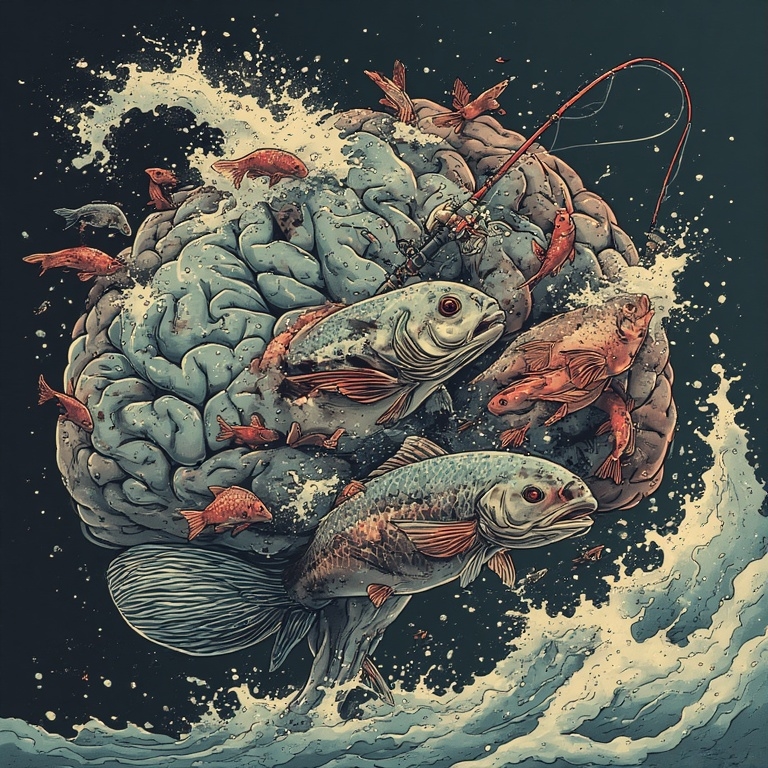






One Comment